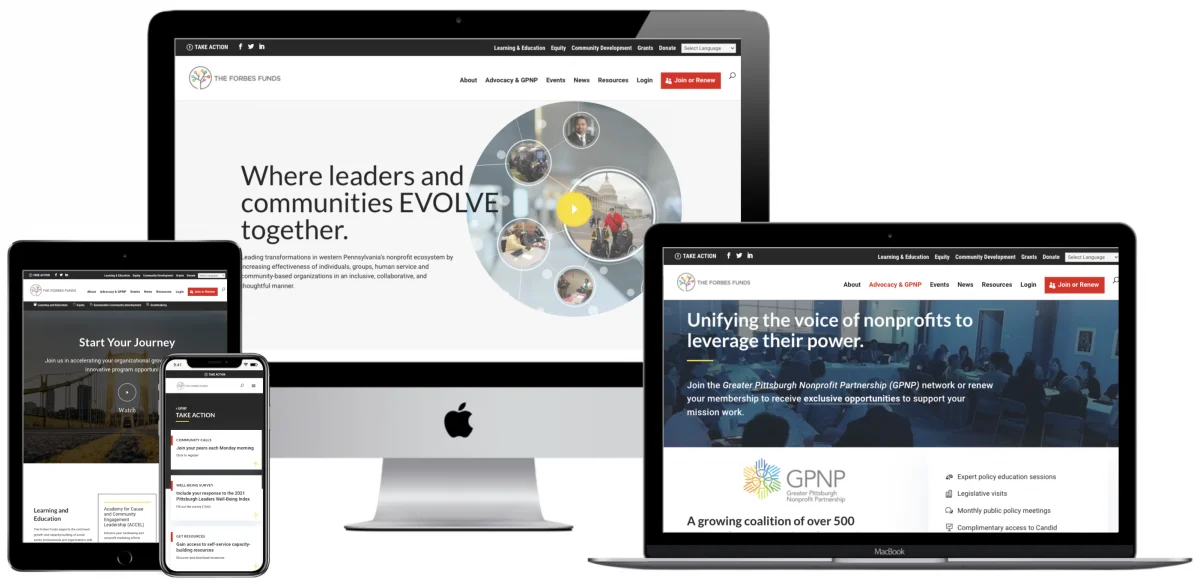Technology has always played a significant role in shaping society, but in recent years, the pace of technological innovation has accelerated, leading to profound changes in the way we live, work, and interact with each other. Consider this, Netflix was founded in 1997 (over 25 years ago) and streaming services were popular not long after, completely changing the way we watch television. TV execs had to change the way they did business quickly. Think of how web design has evolved in that same period especially since the first website was created in 1991. Designers started with table-based layouts and now websites can be gamified and complex. And how fitness trackers have come into vogue in the last fifteen years. Our lives have changed markedly in the last two decades, so just think of the ways they’ll change in the next two!
Tech innovations are not just about gadgets and gizmos; the way tech evolves has the power to drive meaningful social change. From artificial intelligence to blockchain and renewable energy, here are some tech innovations that are having a transformative impact on society.
1) Artificial Intelligence (AI) and machine learning
AI and machine learning have made incredible strides in recent years. These technologies have the potential to disrupt and alter industries like healthcare, education, and transportation. AI-driven algorithms can detect diseases early, personalize educational content for students, and improve the efficiency and safety of transportation systems. In healthcare, AI can analyze vast amounts of medical data, leading to faster and more accurate diagnoses. AI-powered educational platforms can adapt to individual students’ needs, making learning more accessible and effective. The impact of AI on society is already significant and is only expected to grow in the coming years.
For organizations, the benefits are a little more down to earth. Read our piece here on how AI can help your business.
2) Blockchain technology
Blockchain is more than just the foundation for cryptocurrencies like Bitcoin. It is a decentralized, secure, and transparent ledger that has the potential to disrupt various industries. One of its most promising applications is in supply chain management, where it can improve transparency and traceability, making it easier to identify and eliminate unethical or unsustainable practices. Additionally, blockchain can transform the way we vote by ensuring the security and integrity of elections. By eliminating intermediaries, it also has the potential to empower individuals by giving them more control over their digital identities and financial transactions.
3) Renewable energy and green technology
As the world grapples with the challenges of climate change, renewable energy and green technology have become critical drivers of social change. Solar and wind power, coupled with advancements in energy storage, have the potential to reduce our dependence on fossil fuels and combat environmental degradation. The shift towards clean energy sources not only addresses environmental concerns but also creates new job opportunities and reduces energy costs for consumers.
4) 5G technology
The rollout of 5G technology is poised to reshape our connectivity and communication landscape. It promises ultra-fast data transfer speeds and low latency, which can enable innovations like autonomous vehicles, telemedicine, and augmented reality. 5G can bridge the digital divide in remote or underserved areas, making high-speed internet access more widely available. This technology will facilitate a more connected world, allowing people to access services and opportunities regardless of their location.
5) Internet of Things (IoT)
IoT refers to the interconnectedness of everyday objects through the internet. Smart devices are becoming increasingly prevalent, from smart thermostats and refrigerators to wearable fitness trackers. These devices have the potential to enhance convenience and efficiency in our lives. For instance, smart cities are using IoT technology to improve public services, such as waste management and traffic control. However, this increased connectivity also raises important questions about privacy and data security that society must address.
6) Telemedicine
Telemedicine, accelerated by advances in technology, has transformed healthcare delivery. It allows patients to consult with healthcare providers remotely, reducing the need for physical visits to medical facilities. This new tech was particularly important during the COVID-19 pandemic, where telemedicine provided a safe and accessible way for patients to receive care. It not only increases healthcare accessibility but also reduces the burden on healthcare infrastructure.
7) Virtual Reality (VR) and Augmented Reality (AR)
VR and AR technologies are changing the way we experience entertainment, education, and even work. They can transport users to novel worlds, simulate experiences, and enhance training and learning. In the workplace, VR and AR can revolutionize remote collaboration, allowing teams to work together as if they were in the same room. These technologies have the potential to reduce the need for physical travel and increase the accessibility of various experiences.
8) Social media and online activism
While not an innovation, the continued evolution of social media platforms plays a significant role in shaping social change. These platforms have amplified the voices of marginalized communities, provided platforms for activism and awareness campaigns, and facilitated the rapid spread of information. Social media has the power to mobilize movements, advocate for social justice, and hold institutions accountable. However, it also raises concerns about privacy, misinformation, and its impact on mental health.
9) 3D printing
3D printing technology has the potential to transform manufacturing by enabling decentralized, on-demand production. This can reduce waste, transportation costs, and the need for large manufacturing facilities. It also allows for the creation of customized products and even medical implants tailored to individual patients. 3D printing empowers individuals and local businesses to create products and innovate without relying on large-scale factories.
10) Biotechnology and gene editing
Advances in biotechnology and gene editing, such as CRISPR-Cas9, have the potential to recast healthcare, agriculture, and even our understanding of genetics. In healthcare, these technologies can be used to treat genetic diseases, while in agriculture, they can enhance crop yields and reduce the need for harmful pesticides. However, they also raise ethical questions about genetic manipulation and require careful regulation.
These tech innovations are not without their challenges.
The takeaways
Issues such as data privacy, security, and ethical concerns must be addressed as technology continues to evolve. Additionally, the digital divide may become a barrier, as not everyone has equal access to these innovations, which can exacerbate existing social inequalities. By harnessing the power of these innovations responsibly, society can make remarkable progress towards a brighter future.
If you need help with the future of web design and marketing, get in touch with Key Medium today.

Elaine Frieman holds a Master’s Degree and is a UK-based professional editor, educational writer, and former marketing agency content writer where she wrote articles for disparate clients using SEO best practice. She enjoys reading, writing, walking in the countryside, traveling, spending time with other people’s cats, and going for afternoon tea.

